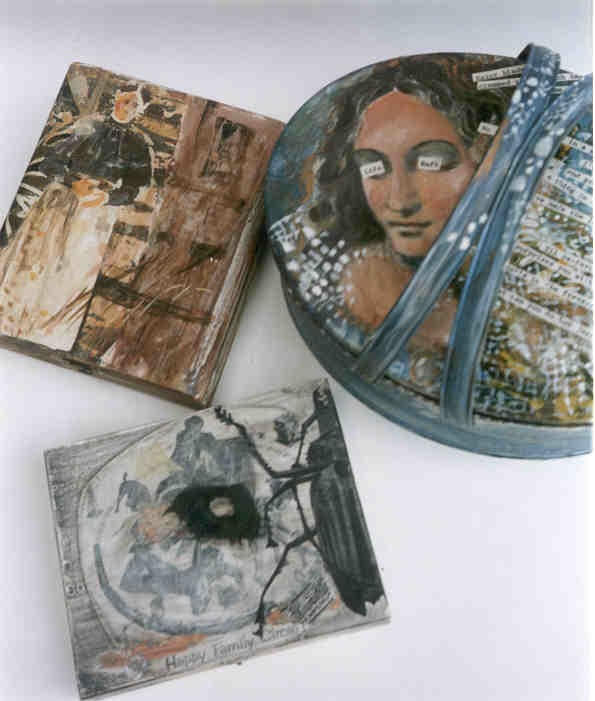I just finished reading a New York Times article about the 50th anniversary of Ms. Magazine in which Gloria Steinem, one of the magazine’s co-founders, is quoted as saying recently: “I feel proud and I feel as mad as hell. We are still dealing with the same issues.” She’s right. Women today face the same issues they’ve been facing for generations.
In the early 80s I won a grant to write and teach a women’s studies course to high school juniors and seniors in a college-prep girls’ school. After doing so for several years, I taught the course, by request, to adult women in several different venues–around my dining table, in a large Episcopal church as part of their outreach courses, and later at my art studio/gallery. I called the course: Herstory 9-Piece. Divided into nine topics, it patterned an Amish mother’s 9-patch quilt sample they taught their daughters to stitch. In class, my students created their own 9-patch quilts into small pillows from fabric pieces representing aspects of their lives. We read numerous women authors voraciously, studied significant women in history, did a great deal of writing, had several guest speakers, and conducted interviews. My favorite assignment I gave the girls was to interview their fathers, using a set of well-crafted questions. Some girls were unable to do the project because their dads were “too busy,” didn’t have the time for their daughters; others didn’t want to answer questions. This was telling in itself.
I think of that course and how constructive it was to the lives of those participating. Women of all ages, as had I, began to understand themselves more deeply and in the context of history itself. I watched as some gained courage, others became more questioning, and all grew to value what it means to be a woman.
One of the hundreds of women we studied was Margaret Sanger (1879-1966) whose pioneering work in birth control and women’s reproductive rights, saved women’s lives. She helped free women from unwanted pregnancies and dangerous abortions. Now–a century later–it looks like women will lose reproductive rights and still face unwanted pregnancies and dangerous abortions–and potentially even prison.
In 1925, women working outside the home (as well as working without pay inside the home) made 25 cents to a male’s 45 cents an hour. Today a woman earns 82 cents for every dollar a man earns. Guess that means women’s wages have improved about 25% in a hundred years. Yippee.
Though there are more of us than them (males) in the U.S., we hold fewer governing positions; for example, women are only 27.9% of the House of Representatives and 24% of the Senate: 24 women senators to 76 male senators. Many of these Congresswomen are also mothers. Hmmm. Wonder if more mothers, more women, were in Congress, it might make a difference in passing gun control legislation? Do you think?
You don’t hold someone in your womb for nine months and raise them to adulthood lightly. You care. You love. You teach. You work hard. And you act. You fight, by law, to prevent a gun from ending any human life. Where macho and ego hate, you know better what really matters. Unequal, overlooked, too often disregarded, yes, you’ve a right to be “mad as hell.” But mainly, you still keep on loving and working for change. It is who you are. You are woman.
Artwork: 3 Poetry Boxes from a series of 10 (7 sold), created from found objects and include original poetry inside each. Each box is a communal repository for the purchaser’s poetry to join with the artist’s poetry. Example: the forefront box, once a “special selection” cigar container, was transformed into an art work entitled “Happy Family Circle” complete with circular 1950s Lionel train layout, fifties kids, and pet dog. Superimposed is a type of roach that eats houses. Inside is a poem the artist wrote to honor family and mock when it isn’t what it ought to be. In the tradition of English writer Fanny Burney (1752-1840) who wrote journals, novels and more, despite being told writing was “dangerous employment” for young women, the purchaser is encouraged to add her own writing to the box, sharing women’s literary experience with the artist.
